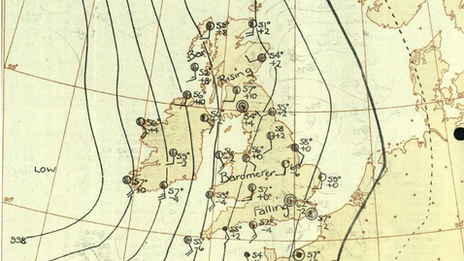World War Two soldier massacre anniversary marked
- Published
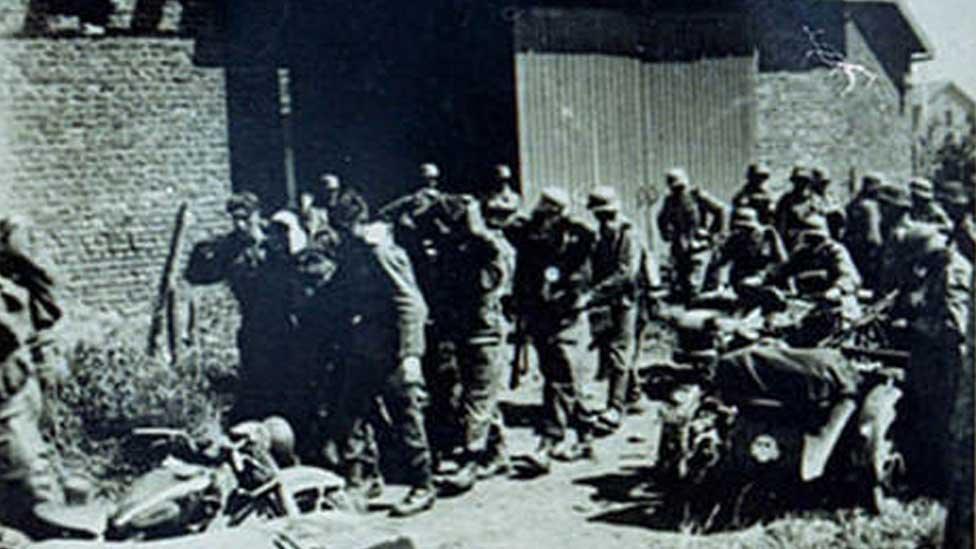
The moment of surrender by men from the Royal Norfolk and Royal Scots battalions in 1940 was photographed by SS soldier Herbert Brunnegger
On 27 May 1940, 99 British soldiers ran out of bullets and surrendered to the Germans, expecting to be treated as prisoners of war. Instead their dog tags were removed, and they were lined up and machine-gunned. Amazingly, two men survived - and lived to see the SS colonel who ordered the shooting brought to justice.
The 2nd Battalion The Royal Norfolk Regiment, external was among those ordered to hold back the German advance across France for as long as possible, to enable the evacuation of nearly 340,000 Allied soldiers from the beaches of Dunkirk.
They fought with little rest or food for 17 days, alongside men from the 1st Battalion The Royal Scots, external, resisting tank charges and repelling oncoming forces from a farm at Le Paradis in northern France.
Finally on 27 May, they ran out of ammunition.
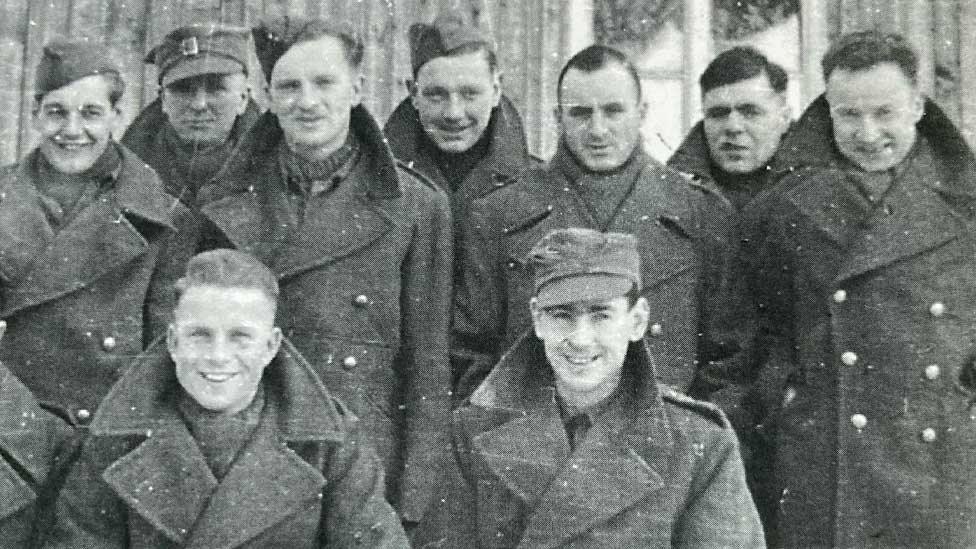
Pte Bill O'Callaghan (third right, top row) had served in Gibraltar during the Spanish Civil War and went to France in 1939 as part of the British Expeditionary Force
Pte Bill O'Callaghan, who had served with the Norfolks since 1932, was among them.
He told his son, Dennis O'Callaghan: "Maj Ryder said it looks like this is the end lads, let's all go out en masse and surrender.
"We hung out the white flag as the first comrades walked out-of-house and we were shortly after marched to a nearby field.
"I saw two machine-guns and asked an officer: 'Are they going to shoot us all?' And he said: 'No, they can't do that, we're covered by the Geneva Convention.'
"But I heard the shout 'fire!' and dived to the ground thinking 'good God, this can't be happening'."
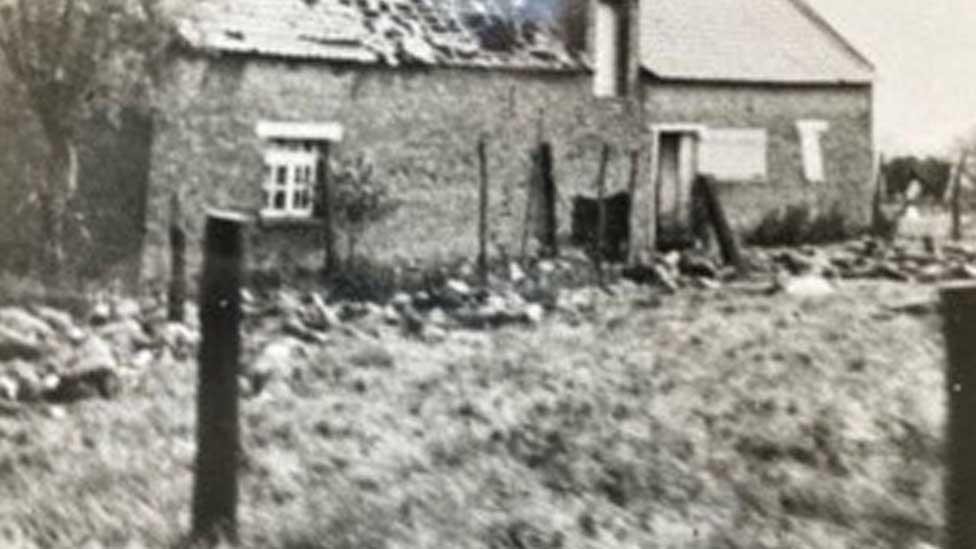
British officers could not believe the German army would order the massacre of prisoners of war
As he lay there with three bullets in his tunic, and a third in his left arm, comrades who cried out were bayonetted and shot by the SS soldiers.
So Pte O'Callaghan faked death and, exhausted by days of fighting and probably in shock, fell asleep for several hours.
His son, 75, said: "The next thing Father knew, it was dark and raining, and he was being shaken awake by Pooley, who'd heard his snores."
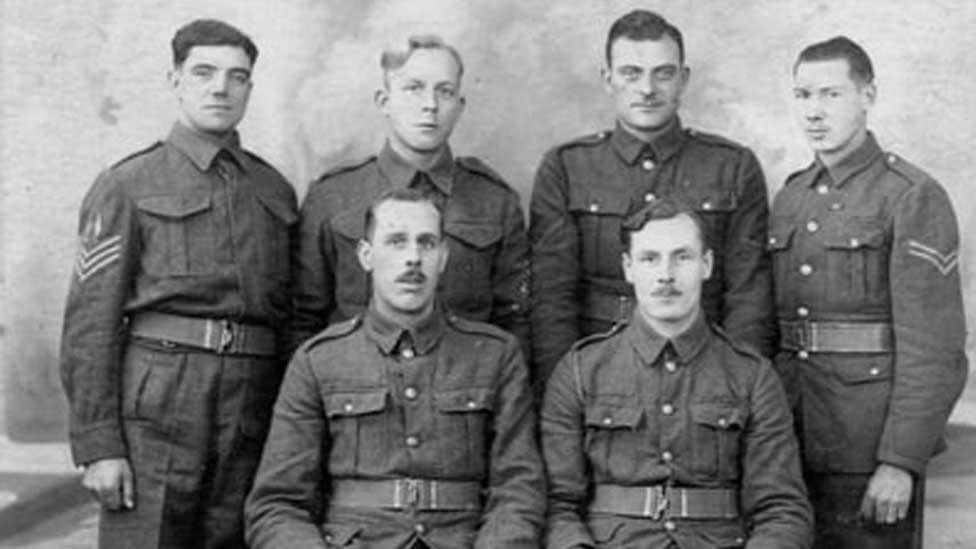
Fellow soldier Pte Bert Pooley (right, bottom row) also survived the massacre
Pte Bert Pooley was the second miracle survivor.
He had a shattered leg, so was carried and dragged across a field by Pte O'Callaghan, who swerved to avoid a barn full of SS soldiers cooking a meal, until they found a pigsty.
They lived there for three days, eating raw potatoes and drinking dirty water from puddles, Mr O'Callaghan said.
"On the fourth day a French woman Madame Creton discovered them and gave them their first food for days."
Her family sheltered and treated the wounds of the men at personal risk - the Germans had threatened to execute civilians helping Allied soldiers.
After about 10 days, they were transferred to a French hospital for treatment before being sent to German prisoner of war (POW) camps.
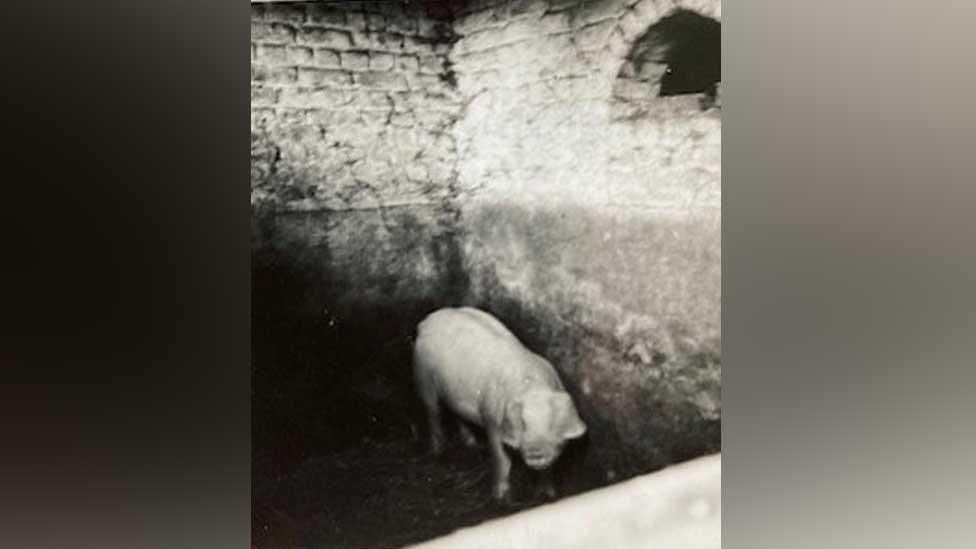
The two injured survivors took shelter in this pigsty
The massacre of the soldiers contravened the Geneva Conventions, external, a series of international treaties designed to protect prisoners of war.
But the men had surrendered to Capt Fritz Knoechlein of the 3rd SS Division (Totenkopf), who ignored the treaties and ordered the massacre.
Word got out about the incident, and at least one German general attempted to hold Knoechlein and his commander Theodor Eicke, external to account to no avail.
However, the British authorities were also dismissive.
"Father saw B Company's commander Capt Alan Hallett in the French hospital and reported the incident - he said it was poppycock and told Pooley the same thing," Mr O'Callaghan said.
Years later, Capt Hallet would explain, external that this was because a massacre was "not a thing we had expected from the German army of those days", but also "if this story was true, the knowledge of it was a very dangerous thing".
Both soldiers resolved not to speak of it again until they returned to Britain, a move which probably saved their lives.
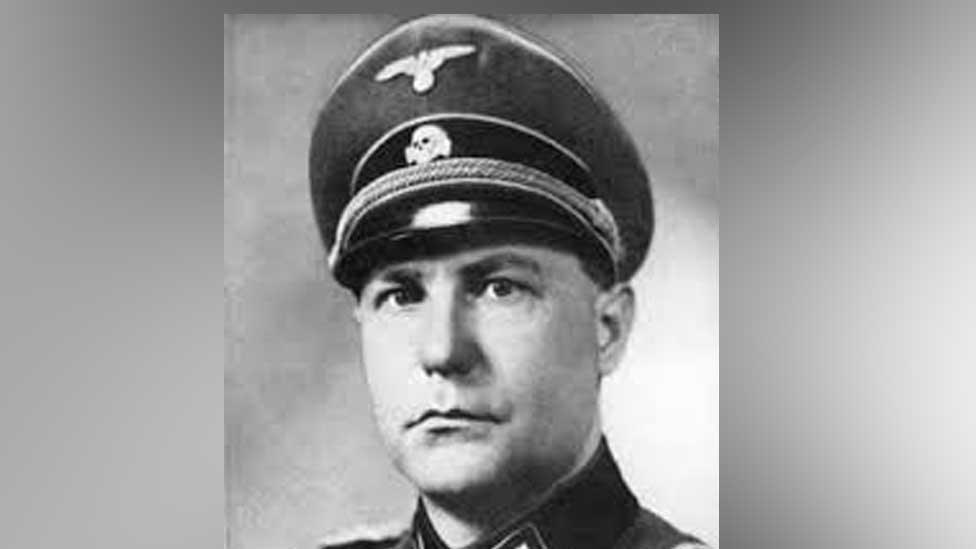
Capt Fritz Knoechlein joined the SS in 1934 at the SS training area close to Dachau and later in the war served on the Russian Front
In 1943, Pte Pooley was repatriated as a result of his injuries. He reported the incident to disbelieving officers once more.
Amateur historian John E Head, 72, said: "His mental anguish at this was so horrendous, he wondered whether he dreamed it all."
In an attempt to discover if it was an hallucination, he "used the family savings" to return to France in 1946 and found other witnesses.
Meanwhile, Pte O'Callaghan also reported it on his return to Britain at the end of the war, having survived a 1,000 mile (1,609km) POW death march.
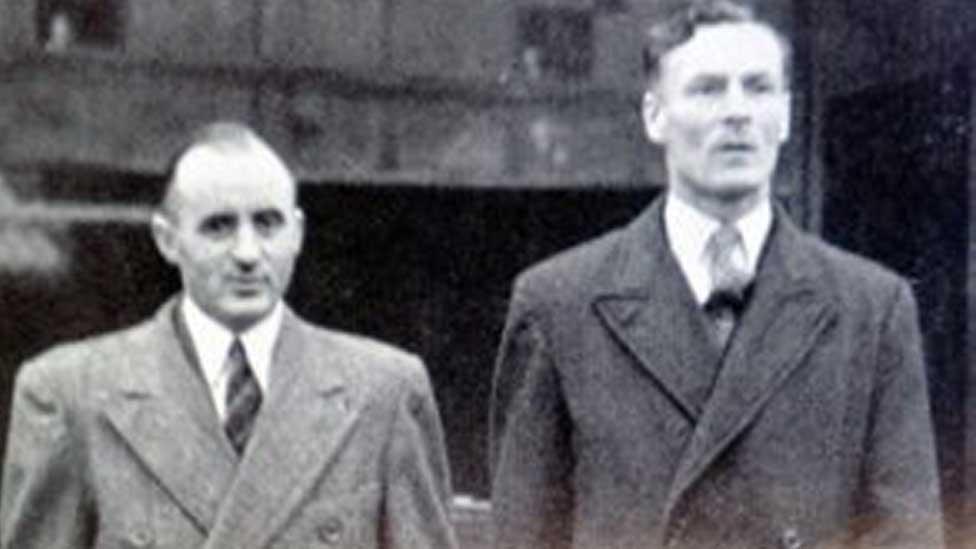
Pte O'Callaghan and Pte Pooley in Hamburg in 1948 where they gave evidence at Knoechlein's war crime trial
The case was taken up by the War Crimes Investigation Unit, external who tracked Knoechlein - by now an SS colonel - down to a POW camp in Sheffield.
He was brought before a war crime trial in Germany in 1948, where he denied the charge. Both Pte O'Callaghan and Pte Pooley travelled to Hamburg to be witnesses.
Mr Head, who researches for The Massacre at Le Paradis website, external, said for what were supposed to be the Nazis' elite soldiers, external, the Battle of France had been bloody and at times humiliating.
"They incurred more than 120 losses trying to cross a canal to the Norfolks, and then Hitler issued a halt order so they had to withdraw," he said.
"Finally, they get across the canal on 25 May, only to be driven back.
"And the Norfolks' sniping was so accurate, they killed about 12 of Knoechlein's guys and he was seen to hold up his hand in a rage and swear vengeance."
Knoechlein was found guilty and executed in January 1949.
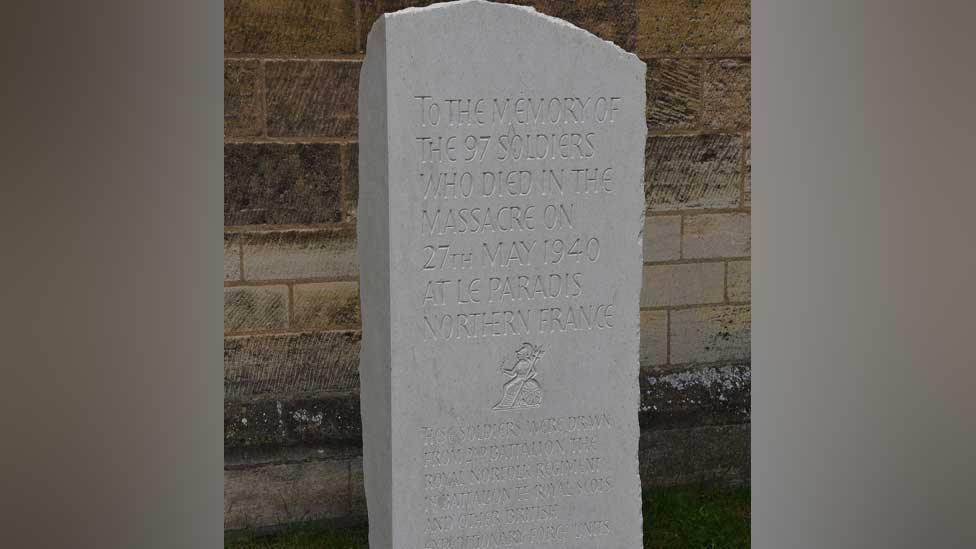
A permanent memorial to the soldiers from 2nd Battalion the Royal Norfolk Regiment, 1st Battalion the Royal Scots and other British expeditionary force units, was unveiled at Norwich Cathedral in 2021
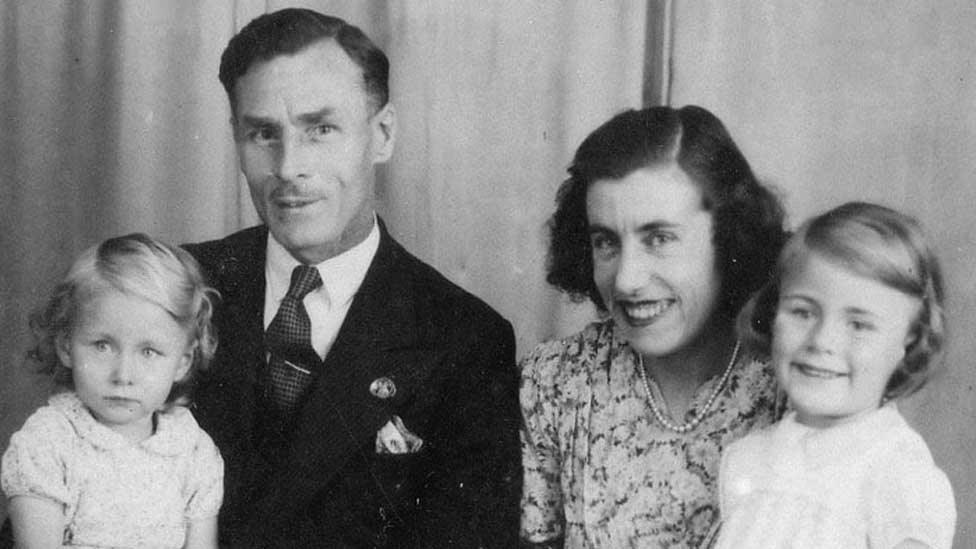
Pte Pooley with his wife Connie and daughters Jeannette and Pat after the war
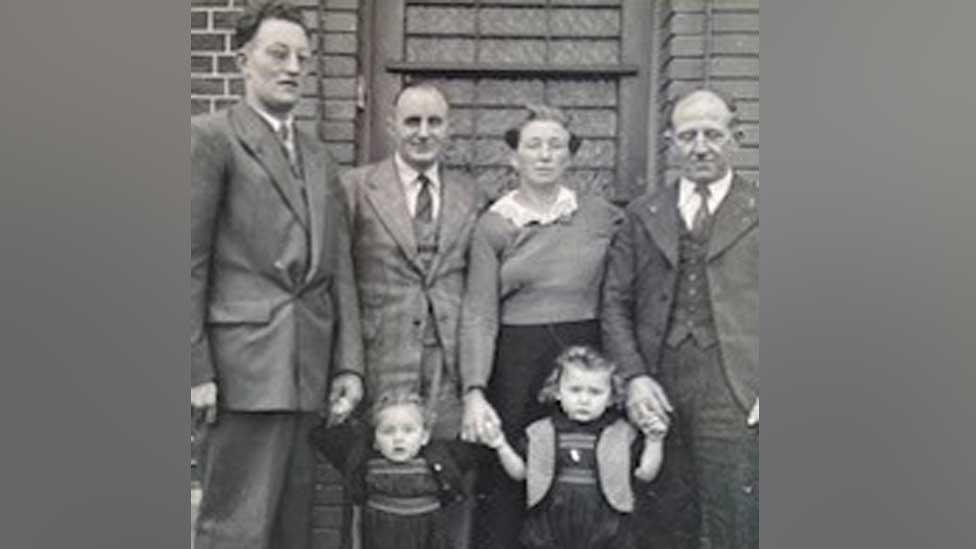
Pte O'Callaghan with his wife Edith and family after the war, including their children Heather and Dennis
The bodies of 111 identified soldiers killed in the massacre or fighting nearby, as well as four members of the RAF and another 40 unidentified bodies, lie in the war cemetery in Le Paradis.
The village, a hamlet in the township of Lestrem near Lille, is commemorating the massacre's 80th anniversary on 27 and 28 May, delayed by two years due to the pandemic.
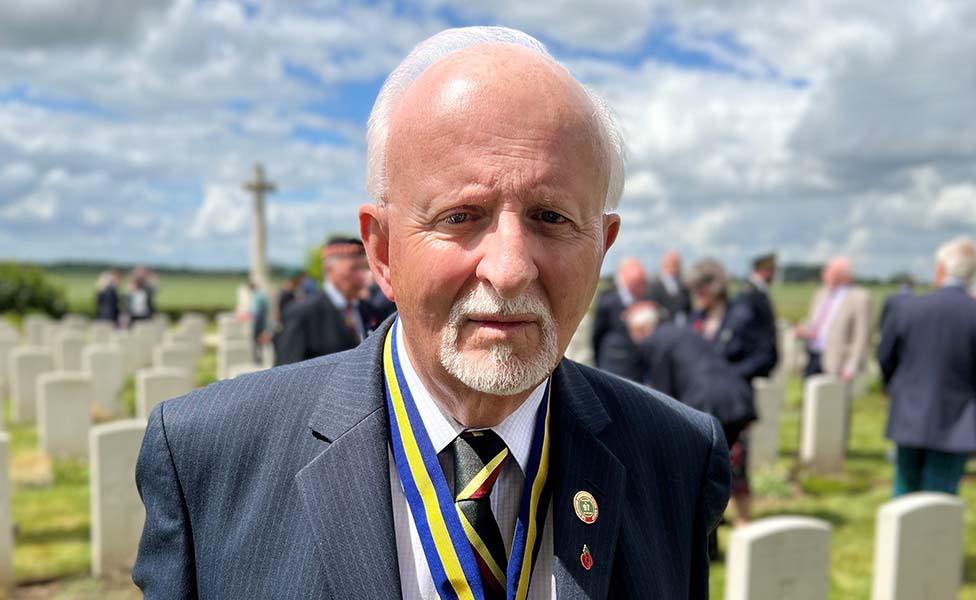
Pte O'Callaghan's son Dennis said it was "very moving" to be at Lestrem
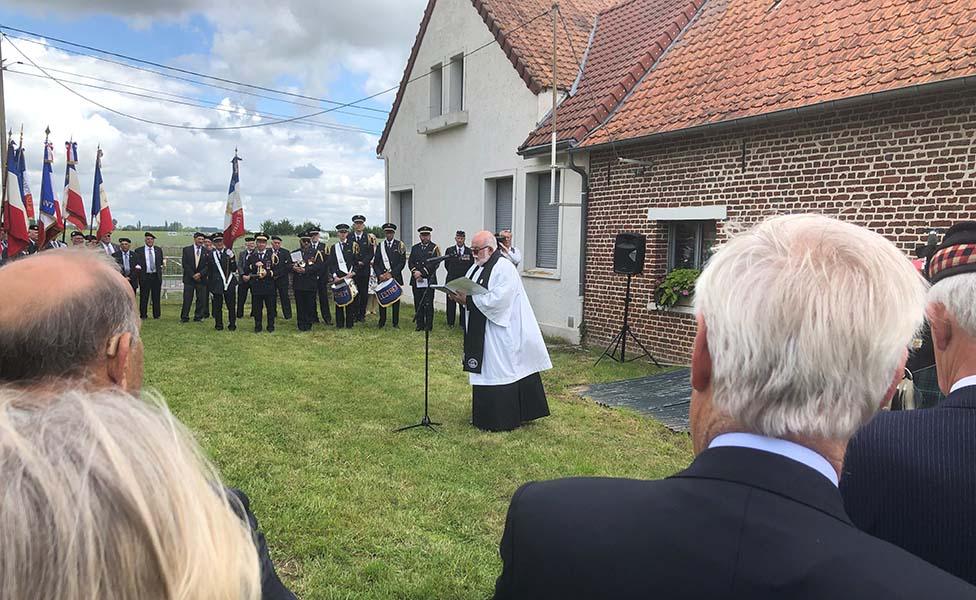
The township of Lestrem near Lille has commemorated the massacre's 80th anniversary, after a two-year delay caused by the pandemic
Stephane Gomanne, deputy mayor of Lestrem and in charge of the commemorations, said there had been a quiet ceremony in 2020.
He said: "Every year... together we remember the Paradis massacre, together we share a solemn moment and a moment of understanding."
Mr O'Callaghan is attending the two-day event with his sister Heather Neave.
He said it "felt special" to be there and it was "so well attended".
"It was very moving. I did get upset, especially in front of the church reading my speech, reading my late father's actual words. It's a very moving place to be," he said.
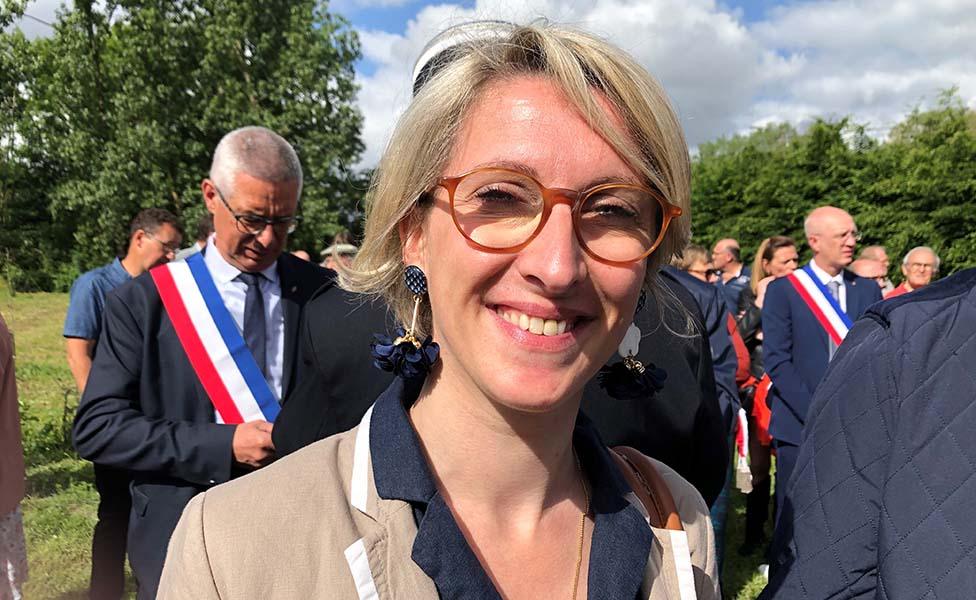
Lestrem resident Joséphine Weingaertner said it was "very important to be grateful to the soldiers who lost their lives for our freedom"
Joséphine Weingaertner, a local resident in Lestrem who was involved in organising the commemorative events, said: "It's important for us to remember - 97 soldiers were killed here by the SS, two survivors were hidden by local people and it's a tragic moment that belongs to our history.
"It's very important to be grateful to the soldiers who lost their lives for our freedom. Every year we have a commemoration to pass the duty of remembrance to future generations so that what happened in Le Paradis will never be forgotten."
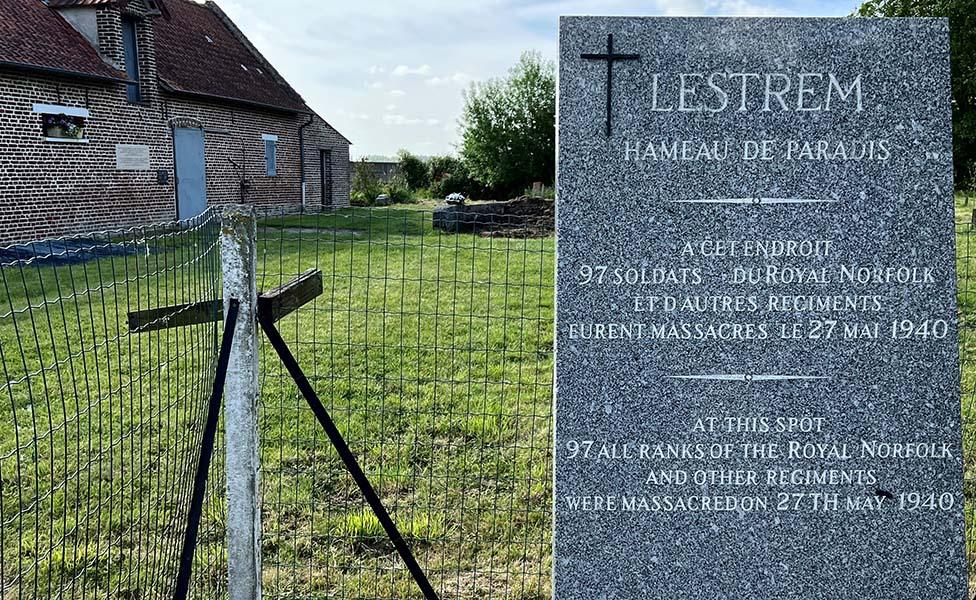
Lestrem holds a commemoration each year

Find BBC News: East of England on Facebook, external, Instagram, external and Twitter, external. If you have a story suggestion email eastofenglandnews@bbc.co.uk, external
Related topics
- Published15 August 2020
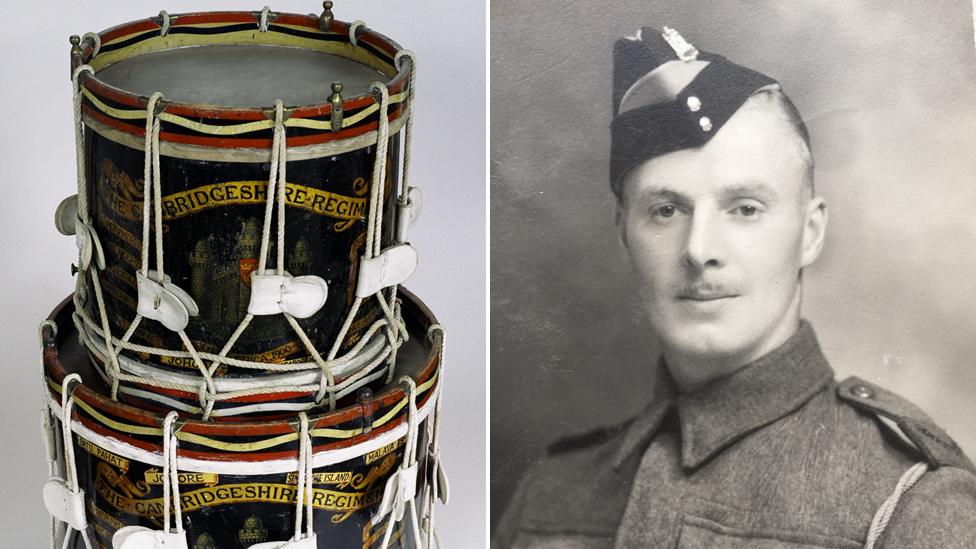
- Published27 May 2020
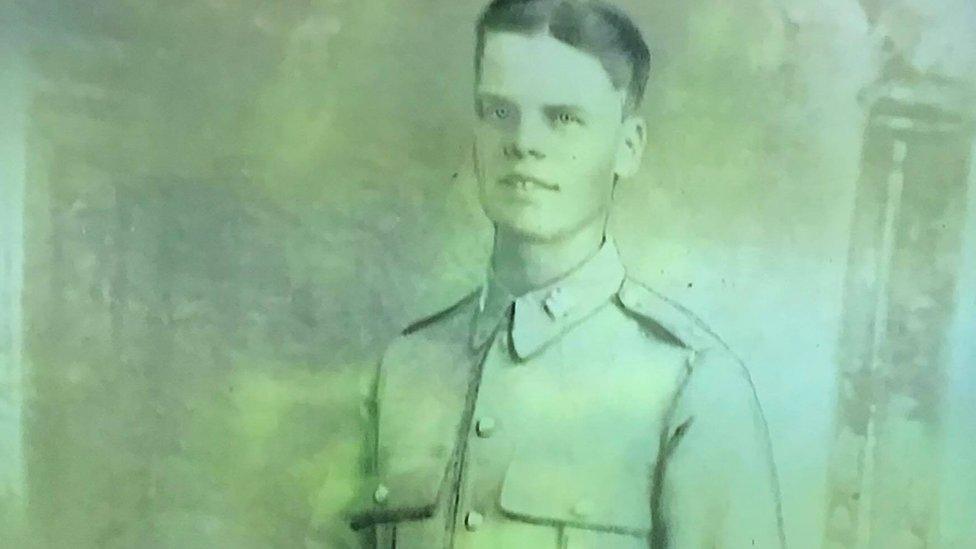
- Attribution
- Published26 May 2020
